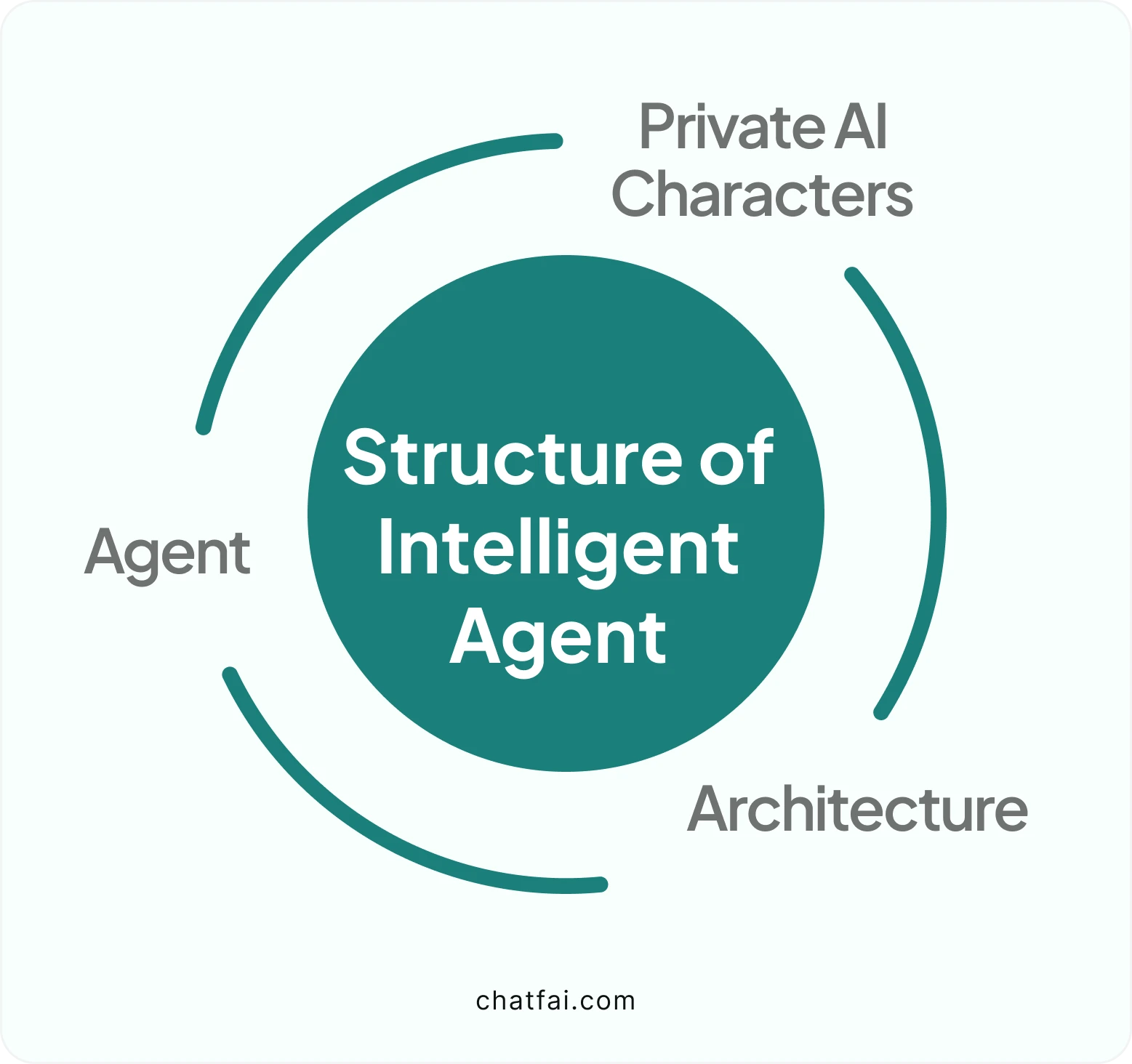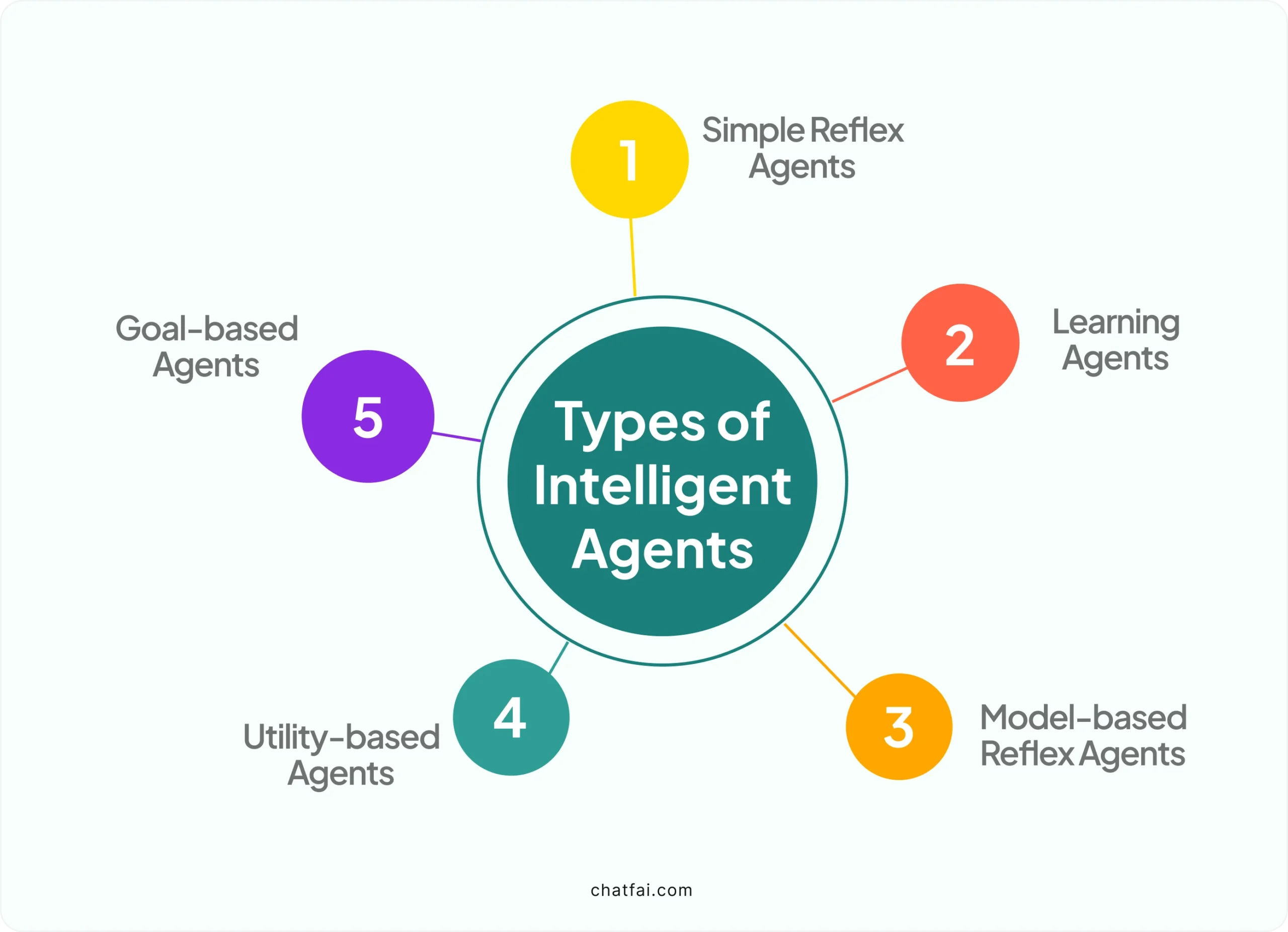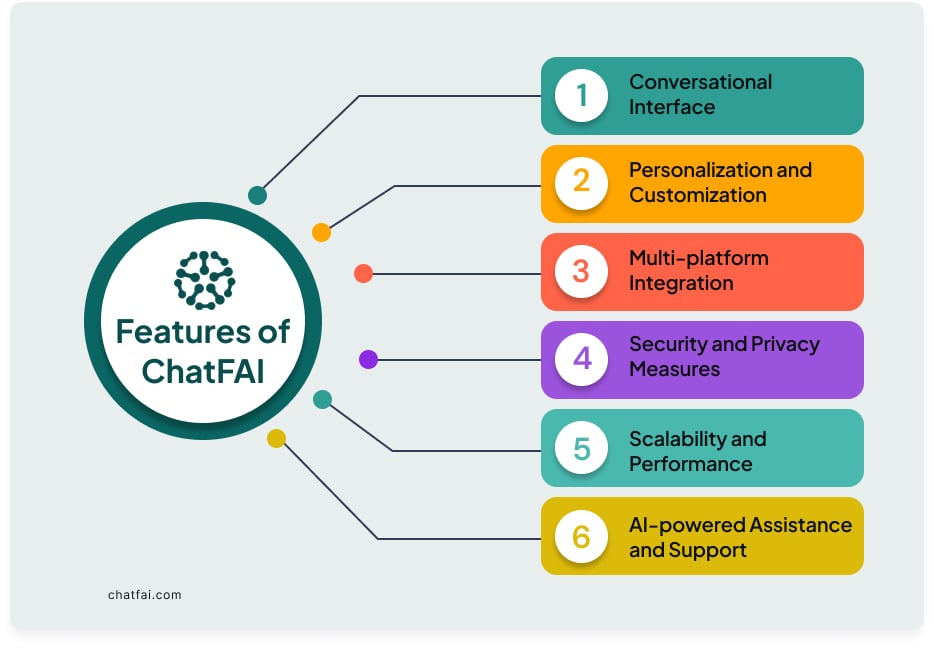Imagine technology so smart it learns and adapts quicker than humans! Well, let us introduce to Intelligent agents. Intelligent agents are digital entities that predict your needs, simplify your tasks, and revolutionise your daily life. Curious to know more about intelligent agents? Prepare your beverage, and let’s Dive into our ultimate guide to uncover how these remarkable agents work and their game-changing impact on everything from personal assistants to self-driving cars. Ready to explore the future? Let’s go!
Intelligent Agent: An Overview
An intelligent agent is a self-contained entity that detects its surroundings using sensors and acts on them using actuators to achieve certain objectives. It can be basic or complicated, and it may learn from its surroundings to enhance performance. Intelligent agents come in many forms, including software, human, and robotic agents, and are utilised in applications such as recommendation systems, self-driving cars, and voice assistants.
Typically, an agent program searches the internet using parameters specified by the user, accumulates material of interest, and provides it to them regularly or as requested. Data intelligent agents can extract any specified information, such as keywords or publication dates.
Agents that use artificial intelligence (AI) and machine learning capture user input through sensors like microphones and cameras. They also employ effectors like fingers and wheels to influence their surroundings and actuators, such as speakers and screens, to deliver agent output. The process of having information brought to a user by an agent is called push notification technology.
Key Characteristics of Intelligent Agents
Here are the key characteristics of intelligent agents;
Autonomy
Intelligent agents can function independently of human involvement.
Perception
They use sensors to collect information about their surroundings.
Action
They employ actuators to carry out actions based on the data gathered.
Goal-oriented
They are intended to achieve specified aims.
Learning
They can draw on their previous experiences to adapt to new situations.
Structure of Intelligent Agent
The structure of an intelligent agent is a combination of architecture and agent program. It can be viewed as:
Agent=Architecture+Agent Program

Architecture
The architecture refers to the machinery the agent executes, such as a robotic car, camera, and PC. A robotic car with sensors (e.g., cameras, sonar) and actuators (e.g., motors, wheels) is an example of an architecture.
Agent Program
The agent programme implements the agent function, defining how the agent perceives its environment and taking actions based on that perception.
Agent
The agent performs all actions based on its program and architecture. PEAS is a model that captures the properties of an agent and its surroundings. It stands for Performance Measurement, Environment, Actuators, and Sensors. As soon as the task is assigned to the agent, it splits the action according to the PEAS model and gets it done.
Example: For a self-driving vehicle, the PEAS representation could be:
Performance metric: safe and efficient driving.
Environment: roads, traffic signals, other cars, and pedestrians.
Actuators: steering, acceleration, and braking.
Sensors: cameras, radar, lidar, and GPS.
Types of Intelligent Agents with Examples
Intelligent agents are classified based on their range of functions and capacities, as well as their level of intelligence:

1. Simple Reflex Agents
These agents operate in the present, ignoring previous events. Responses are based on the event-condition-action rule, or ECA rule, in which a user initiates an event, and the agent refers to preset rules and preprogrammed results.
2. Model-based Reflex Agents
These agents respond the same way as reflex agents but have a more complete picture of their environments. The internal system has a world model based on the agent’s history.
3. Goal-based Agents
Agents motivated by their goals, or rational agents, supplement the information model-based agents retain by storing goal information or information about ideal scenarios.
4. Utility-based Agents
These agents are similar to goal-based agents. However, they add an extra utility measurement that ranks each conceivable scenario based on the intended outcome and then selects the action that maximises the result. Examples of rating criteria include success probability and required resources.
5. Learning Agents
Thanks to an extra learning algorithm or element, these agents can gradually improve and gain knowledge about their surroundings. The learning element employs feedback on performance metrics to identify how performance factors should be modified to improve gradually. This notion explains how an AI system should operate.
Example of Intelligent Agents
Intelligent agents in AI include virtual assistants such as Siri, Alexa, and Google Assistant, which employ natural language processing and machine learning to understand user requests and give relevant information or services.
AI assistants like Alexa and Siri use sensors to recognise human requests and autonomously retrieve data from the Internet without the user’s involvement. They may also gather information about their observable environs, such as weather and time.
Google Assistant is another example of a smart AI assistant. It combines machine learning and natural language processing technologies to answer users’ questions and conduct actions like calling contacts specified in voice commands.
Recommendation systems in e-commerce and entertainment platforms leverage user preferences and behaviour to recommend suitable products, movies, or content.
Self-driving vehicles use sensors, computer vision, and decision-making algorithms to traverse highways and traffic automatically.
Intelligent financial trading systems use data analysis and decision-making models to discover trading opportunities and execute deals automatically.
Explore how you can use AI as a virtual executive assistant.
Intelligent Agents and how are they used in AI
Intelligent agents use sensors to see their surroundings, process the data, and act via actuators to achieve certain objectives. Here’s an breakdown of how intelligent agents are utilised in AI:
Perception
Intelligent agents collect information about their surroundings using sensors such as cameras, microphones, and other data sources. This enables them to perceive and comprehend the world around them.
Reasoning and Decision-Making
Intelligent agents employ algorithms, logic, or machine learning techniques to analyse data, draw conclusions, and decide on the best action. This decision-making process is influenced by the agent’s aims and objectives.
Action
After deciding, the intelligent agent employs actuators to alter its surroundings, such as moving or manipulating items or interacting with other systems. The acts are targeted at achieving the agent’s objectives.
Learning and Adaptation
Intelligent agents usually learn from their experiences and adjust their behaviour over time to improve their performance. This enables people to be more effective in reaching their aims.
Although intelligent agents have just started out, there’s room for improvement and to get things done.
Interesting Read: Learn how you can use AI as a virtual assistant.
Different AI tools have the characteristics to be intelligent agents who can perform actions on your behalf. ChatFAI is one tool that understands human language and helps complete your tasks. Here are the top features of this smart AI tool;

Read everything about ChatFAI here.
From helping you learn a language to becoming your therapist and friend, ChatFAI can amaze you with its endless possibilities.
Wrap Up
That’s everything you need to know about intelligent agents. You’ve just unlocked the secrets of intelligent agents, the driving force behind today’s smartest technologies. From enhancing your daily routines to pioneering advancements in AI, intelligent agents are reshaping our world in extraordinary ways.
But why stop here? Dive deeper into the future of AI and experience the magic firsthand with ChatFAI. Ready to transform your interactions and explore endless possibilities? Try ChatFAI now and step into the future today!
FAQs
What is an intelligent agent?
Intelligent agents are smart bots that gather information from the surroundings and act accordingly. These are like smart assistants that reduce your work by automating tasks.
What are examples of intelligence agents?
Siri is a well-known example of an intelligent agent that uses NLP and responds to voice commands. It’s just the beginning of AI intervention in human life.
Is a human an intelligent agent?
As far as the intelligence is compared, humans are considered as the intelligent agents that
What are rational agents and intelligent agents?
An Intelligent Agent is a system that perceives its surroundings and takes actions to achieve a certain purpose. A Rational agent makes rational decisions and optimises its behaviour to achieve a certain purpose.
What are the four 4 characteristics of an intelligent agent?
An intelligent agent possesses autonomy, perception, goal-oriented, action-oriented, and continuous learning. These agents took hints from the last actions performed and did their jobs accordingly.